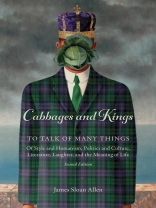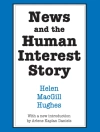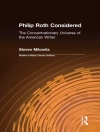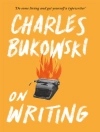Cabbages and Kings is a rather whimsical title (borrowed from Lewis Carroll) for a collection of what are, for the most part, learned essays on serious subjects. But the collection has a somewhat whimsical spirit as it brings together writings on many things, such as style in life and art, in restaurant design, and in the philosophies of Friedrich Nietzsche and Oscar Wilde; relations between liberalism and conservatism, Islam and the West, church and state, Modernism and Postmodernism; ideas of Sigmund Freud, Marcel Proust, Virginia Woolf, George Orwell, Alexis de Tocqueville, and a daughter of Karl Marx; as well as the story of a Japanese detention camp, the necessity of laughter, and how to think about the meaning of life.
And yet for all of its variety of subjects, Cabbages and Kings has an underlying theme. That is a humanistic way of life. Whether exploring the nature of style or the aspirations of Modernism, the character of popular culture or the ethics of civility, the tangles of self-consciousness or the sense of cultural decline at the end of the twentieth century, the perspective of humanism prevails. That perspective embraces ideas of many kinds along with the desire to shape a world that gives humanistic meaning to life.
Overall, Cabbages and Kings is a spirited adventure in ideas, culture, and humanism engaging both mind and imagination as it takes readers through a variegated intellectual landscape.
Table des matières
Acknowledgments
Prefatory Note
I. On Style & the Good Life
1. Style in Art, Character, and Culture
2. The Arts of the Dining Room
3. Remembrance of Restaurants Past
Styles of Hospitality
4. Isn’t It Romantic?
5. Theater of Tranquility
6. Starck’s Swan Song: With a Note on Feng Shui at Felix
7. Elegant Utility
8. Mrs. Dalloway and the Ethics of Civility
9. Nietzsche and Wilde: Cultural Rebellion and an Ethics of Style
II. On The Political Life
10. Notes on Liberalism and Conservatism with a Comment on Political Correctness and the Rights of Civility
11. Orwell, Mind Control, and Our Times
12. A Wartime Tragedy and a Teacher Who Would Not Let It Be Lost
13. Notes on Islam, America, and Human Rights with a Few Words on Good Soldiers in the War of Ideas
14. A Stranger to Power: On the Separation of Church and State
III. On Modernity & Modernism
15. What Was Modernism?
16. Modernity, Modernism, and the Evil of Banality
17. Self-Consciousness and the Modernist Temper
18. More Emma than Nora: A Victorian/Marxist/Modernist Melodrama
19. Sigmund Freud: Bourgeois Modernist
20. Tolstoy’s fin de siècle and Ours: From Decadence to Postmodernism
21. Fin-de-siècle America and the Twilight of Culture
IV. On Humanism, Classics, Laughter, Proust, & the Meaning of Life
22. How Humanists Have Betrayed Humanism
23. The Humanities and Their Discontents
24. The Existential Reader: Reading, Rumination, and the Classics
25. The Classics: Casebooks of Humanistic Education
26. Let ’em Laugh: Tristram Shandy and the Humanity of Laughter
27. As Time Goes By: On Reading Proust and Finding the Magic Sand
28. Thinking about the Meaning of Life: A Dialogue
Index
A propos de l’auteur
James Sloan Allen is a widely published author, world traveler, and longtime New Yorker, who now lives in Honolulu.












